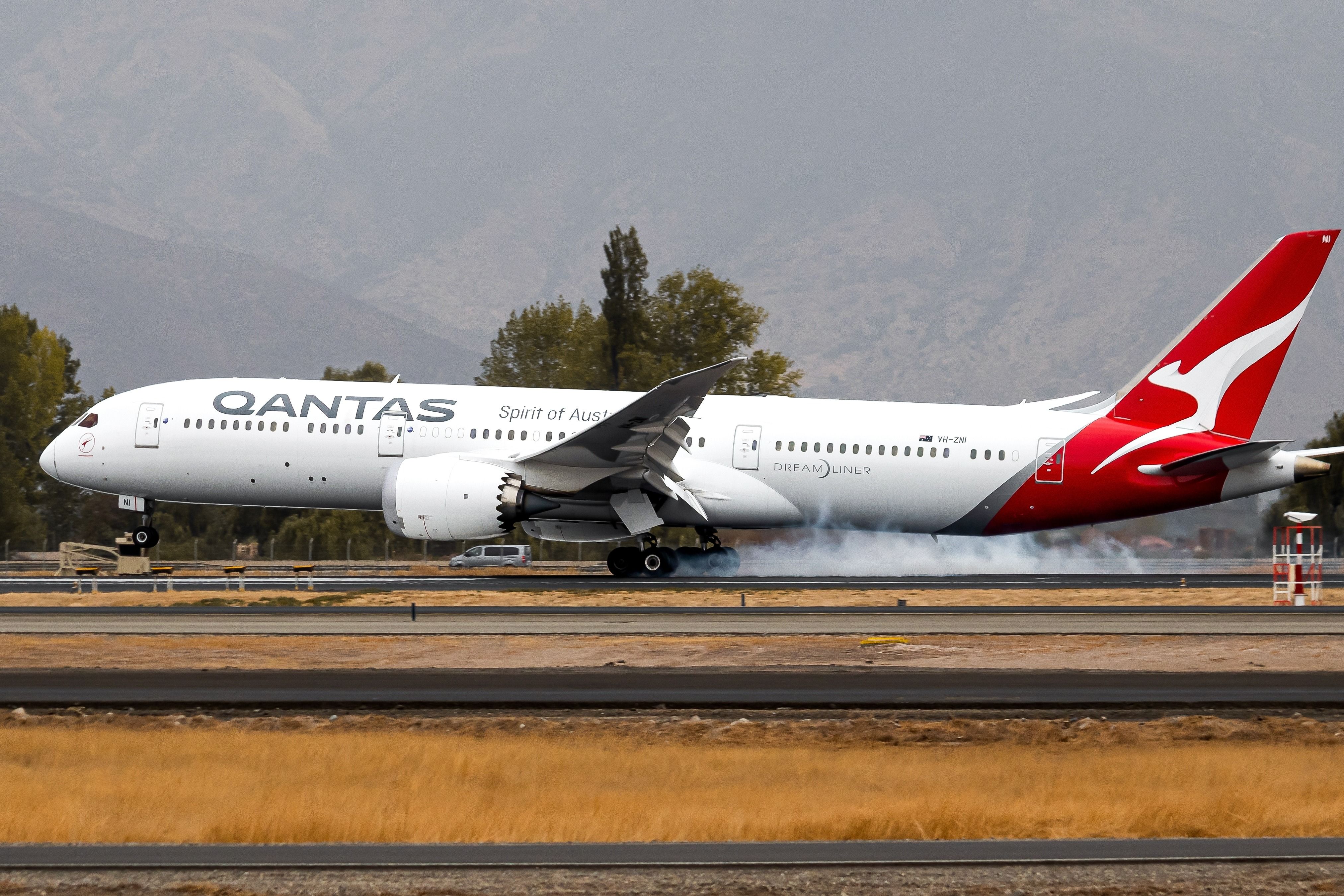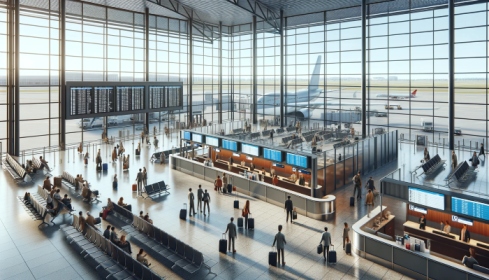On Thursday, Australian flag carrier Qantas announced its results for the twelve months ended June 30, 2024 (FY24). Similarly to near-neighbor Air New Zealand, Qantas reported a 16% fall in underlying profit before tax and a 28% drop in statutory profits after tax compared to the previous period. Behind the numbers Between July 1, 2023, and June 30, 2024 (FY24), the Qantas Group earned an underlying before-tax profit of AU$2.
08 billion ($1.41b) and a statutory net profit after tax of AU$1.25 billion ($850m) compared to AU$2.

47 billion ($1.68b) and AU$1.74 billion ($1.
18b) in FY23. Qantas attributed the earnings decline to fares moderating as market capacity returned, increased spending on customer initiatives and reductions in freight revenue. While last financial year generated record profits, it came when Qantas and its former CEO Alan Joyce were making front page news for all the wrong reasons, with reliability, refunds for canceled flights and customer complaints leading the nightly news.
Alan Joyce is no longer CEO of the Qantas Group and his successor Vanessa Hudson officially takes over the controls tomorrow. Since the departure of Joyce in September 2023, Qantas Group CEO Vanessa Hudson has worked to rebuild the airline's credibility and standing in the community, with many interpreting that to mean the ruthless pursuit of profit was being tempered with a more people-focused touch. Speaking about that and the FY24 results, Hudson said: "Our focus this year has been getting the balance right in delivering for customers, employees and shareholders while building a better, stronger Qantas Group.
Restoring trust and pride in Qantas as the national carrier is our priority, and while there's more work to do, we'll get there by delivering for our customers and people into the future." In the past year, Qantas invested AU$230 million ($156m) in customer improvements, completing more than 120 customer initiatives and service level enhancements. These included route-specific menu changes, more frequent flyer seat availability, overhauling customer digital platforms, recruiting 200 people to assist with customer credits and disruption recovery and introducing baggage tracking.
Qantas' mishandled baggage reduced by more than 30% year-on-year, and is now better than pre-pandemic levels. Fleet renewal is a success The big numbers have gone into fleet renewal, with 11 new aircraft arriving in FY24, 20 more in the coming year, and the remaining two Airbus A380s returning over the next 18 months. Jetstar now has 15 A321LRs operating, while regional carrier QantasLink has three new Airbus A220s in service .
In June, QantasLink announced investing in 14 mid-life De Havilland Dash 8-Q400 turboprops to replace smaller Q300 and Q200 aircraft as part of its ongoing commitment to keeping regional Australia connected. The first Qantas A220 is undergoing a series of evaluation and training flights on Australia's East Coast as it prepares to enter service in 1Q 2024. Around half of the new A321LRs flying with Jetstar have replaced older-generation Airbus A320s, which is contributing approximately AU$7 million ($4.
8m) incremental EBIT (earnings before tax and interest) per hull through fuel and scale efficiencies. Qantas is eagerly awaiting delivery of its first Airbus A321XLR, due in April of next year, with pilots already training on a new simulator in Sydney . The new simulator is a CAE 7000XR Series, and Qantas will train more than 240 A321XLR pilots over the next three years at its Sydney Flight Training Centre.
The Qantas Group is strong Hudson added that the investments in operational reliability and customer initiatives, [many of which started under Joyce's tenure], delivered positive improvement in on-time performance and customer satisfaction. To recognize these improvements, Qantas is awarding 23,000 non-executive employees AU$500 ($340) staff travel vouchers, which can go towards already heavily discounted standby fares. This is in addition to the AU$500 voucher awarded in February.
The strong FY 24 results will allow Qantas to continue with its largest-ever fleet renewal program, coming at a time when Australians prioritize travel over other spending. Hudson added: "This result shows the underlying strength of the Group's integrated portfolio. Qantas benefitted from increased corporate and resources travel and ongoing high demand for international premium seats, while Jetstar delivered its highest result as it grew to meet increased demand from price-sensitive leisure travellers and saw the benefits from its new aircraft.
" After an absence of 20 years, Qantas is back in Paris as it keeps on whetting the appetite of Australians for the launch of Project Sunrise. The Group returned to pre-pandemic international capacity in May 2024, although the increased revenue from flying was offset by increased competitor capacity, resulting in an 11% reduction in unit revenue, although that slowed between January and June. The ultra-long-haul Boeing 787-9 nonstops from Perth to London, Rome and (since July) Paris are in high demand and are building confidence for the launch of Project Sunrise flights in mid-2026.
Jetstar's international network grew significantly, driven by the regular arrival of new Airbus A321LR long-range narrowbodies. The A321LRs' extended range has seen them expand short-haul international services to destinations like Fiji and Bali, allowing the Boeing 787-8s to be redeployed on long-haul nonstop routes , such as from east coast Australia to Japan and South Korea. To make all that work smoothly, Qantas invested heavily in people by recruiting and training with the arrival of new aircraft a key driver of those positions.
Up to 2,000 full-time roles were added during the year, including pilots, engineers, cabin crew and airport staff, and 2,300 existing employees were promoted internally. In FY24, Qantas received 150,000 applications across 4,700 advertised roles. Looking ahead, Qantas expects stable demand across its portfolio, with Group domestic unit revenue increasing by 2-4% over FY25.
However, it expects international unit revenue to fall 7-10% as market capacity continues to return. The rate of decline will slow in the second half of FY25 and turn positive in the fourth quarter. A final word on Qantas.
When its low-cost rivals Bonza and Rex suddenly folded this year, Qantas and Jetstar stepped up and provided free flights to more than 45,000 out-of-pocket passengers left in despair as those airlines collapsed. Actions like that will restore the public's faith in Qantas far quicker than how high its profits will be next year, and that's a big step back from the abyss it faced a year ago..



















